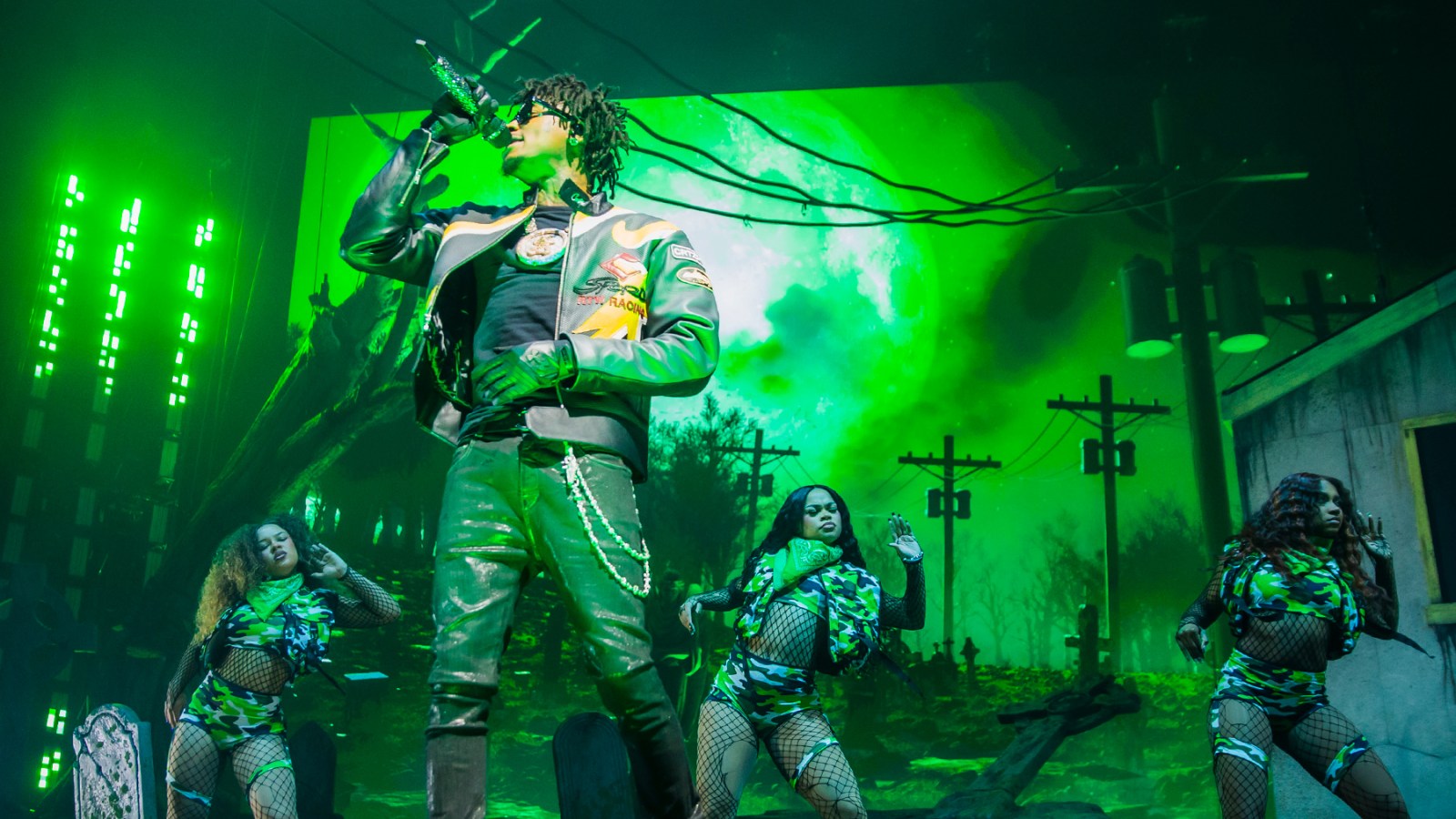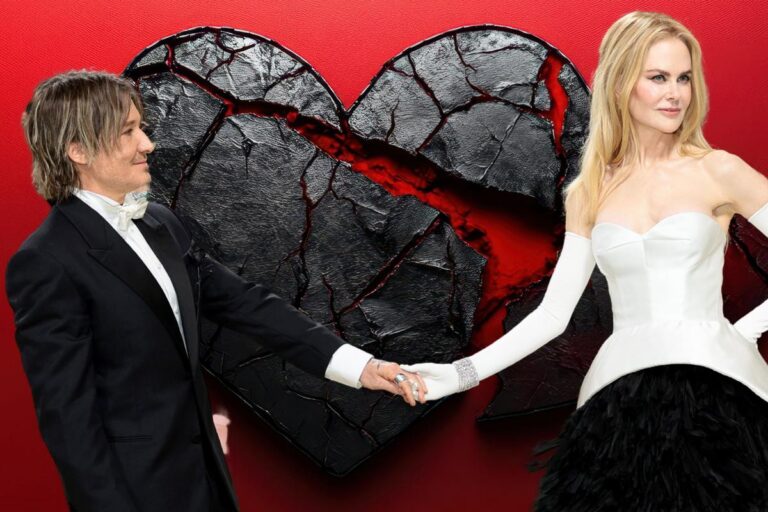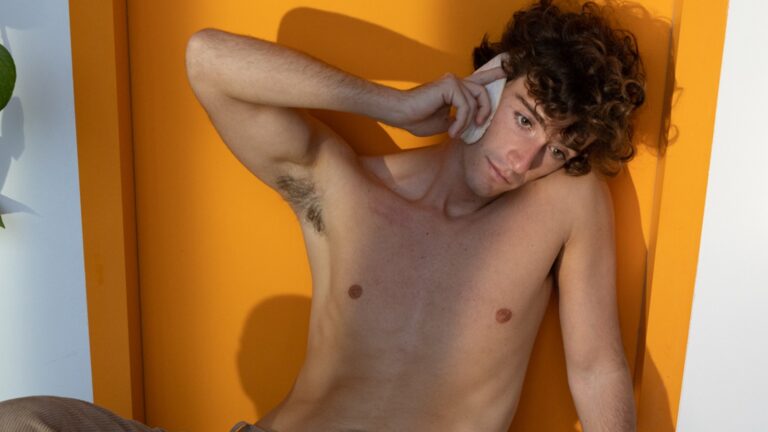In true NBA YoungBoy fashion, the number of songs he performed at last night’s show in Newark was almost overwhelming. You might feel a sensory overload, but you will never be bored by the Baton Rouge rapper’s compulsion, appetites, or his enduring melancholy that exists in the fog of the music, even when he is being violent, even when he is an egotistical maximalist. At that show, he let adults into his web that the youth currently find irresistible. Packed in an area with people I might have babysat five years ago, YoungBoy was the 2Pac for his generation last night.
Well, sort of, actually: in fairness to all of the critics of YoungBoy’s infamy and music, he’s not the songwriter that Pac is, not the ridiculously charismatic speaker that the son of Afeni was. However, he is born out of the same need to release music, to release the demons that are entering his brain. He is forever compelled to rap about his fluctuating emotions; even in moments when it doesn’t work due to mediocre beat selection, he remains enthralling to listen to.
Since the release of AI YoungBoy in 2017, YoungBoy has been the subject of fascination on the internet, leading to both streams and controversy. There is no other rapper in this last decade who has combined genuine fame with parasocial notoriety quite like YoungBoy. Plenty of rappers have been in trouble with the law, but YoungBoy’s cases — the absurdity of them, the volume of them, the way he seems completely uncomfortable in the outside world — invite fans to project their need for authenticity onto him. Rarely has a rapper been as famous and consistently in trouble at the same time.
What is most appealing about YoungBoy is that his music, quite frankly, is the sound of a man who is very much not well. Listening to masterful albums like 3800 Degrees is a glimpse into the underbelly of the attention economy. Where Lil Boosie and Kevin Gates are hometown heroes, two artists who are direct ancestors for YoungBoy’s style, YoungBoy is more notorious, fodder for the gossip shows and the minor podcasts that infiltrate their way onto your timeline.
NBA Youngboy performs at the Prudential Center in Newark, New Jersey.
Leyda Luz for Rolling Stone
Compared to other rap tours, YoungBoy’s stage design was more catered to the contemporary rap fan than to an elitist crowd. Before YoungBoy showed up, dancers came on the stage in military colors and shot at the replica of his house, causing a loud blaze as if they were in Showgirls. It was subversive street rap as spectacle, a carnival of distrust. There was loads of imagery too, loads of mythology: when YoungBoy opened with “MASA”, he came out of a coffin, a startling image for a rapper who has tweeted out the word suicide. The show would avoid references to Trump, even though his latest album, MASA, short for “Make America Slime Again,” is a reference to Trump as a political figure. YoungBoy was famously pardoned by President Trump in May.
At times, the house would break apart on stage, with the top half lifted in the air, only for YoungBoy to start aggressively rapping, standing supreme while the house crumbles around him. It reminded me of that scene in Sinners, except NBA YoungBoy isn’t trying to teach us Black history. Throughout the show, everyone had green bandanas out, the same ones that street vendors were selling for seven dollars outside the Prudential Center. It was odd, but one of the most colorful and coolest things I have ever seen. Never has a rap show resembled a mid-2000s video game set in the Florida Keys swamp.
Like a typical pop star, YoungBoy has a robust and niche fan base of kids who never miss a beat. It is almost as if he is famous without adhering to mainstream standards of celebrity. He might not be able to be the musical guest on SNL—a good example of how segregated music is now, how there are two Americas—but he can make the internet run amok by sheer presence. In a year where rap tours have struggled, YoungBoy’s has gone viral because of the “YN’s” — internet speak for “young niggas” — who have packed out just about every date so far, amping each other up, standing on their seats, trying to get a glimpse of YoungBoy’s orbit, his aura that feels undeniable even though he barely speaks to the crowd when he is up there. At the Prudential Center, the crowd was a diverse group of fans, ranging from teenagers to young adults. At one point, a friend of mine looked up and saw a white boy in a shiesty.
The pungent smell of weed pervaded the arena as YoungBoy performed an eclectic set, showcasing the breadth of songs in his catalog. “No Love” on AI Youngboy got as much love as “Smoke Strong” on Sincerely, Kentrell. From there, he rapped “Shot Callin”, the underrated single from May where he changes flow every stanza, showcasing how good he can be when he stays unpredictable. Then came “Valuable Pain”, a standout from 2018’s Realer, one of his lesser albums. He ended the show with the singular “Lonely Child”, off of the masterful AI Youngboy 2.
Still, the question remains: Who is NBA YoungBoy, and what is his relationship to the attention economy of hip-hop? Where does he fit in this right-wing moment we’re in? It is almost cliché to say this, but YoungBoy is a list of contradictions. He’s both established and subversive, famous and niche, a revolutionary and a friend of Donald Trump. I didn’t learn much about his personal life by watching him perform. Fortunately, you have to listen to his wide-ranging, intense music to find that out. Instead, I found out that he is as hip-hop as hip-hop can be: impulsive, loud, obsessive, and baroque. This generation could be worse off.



